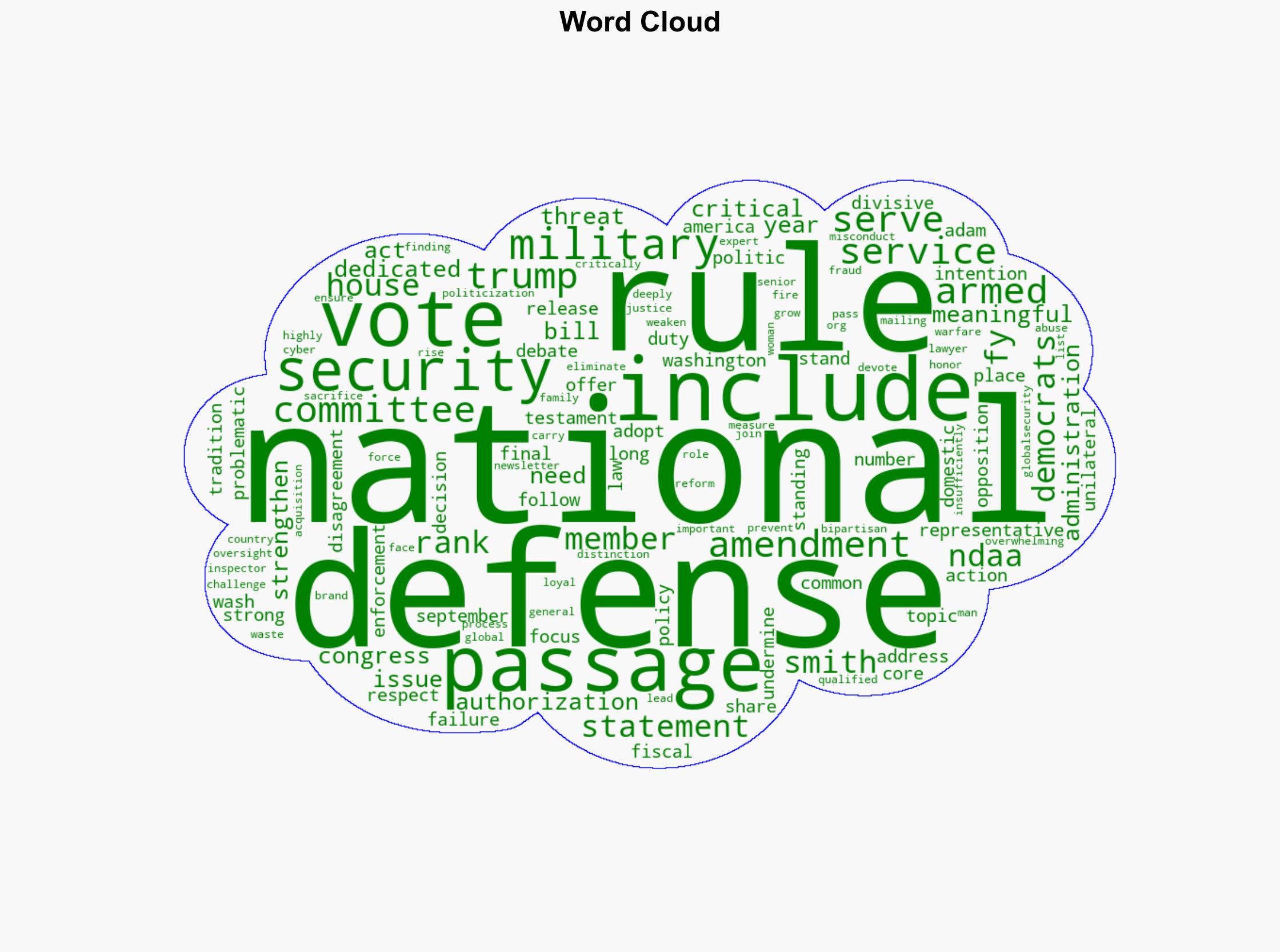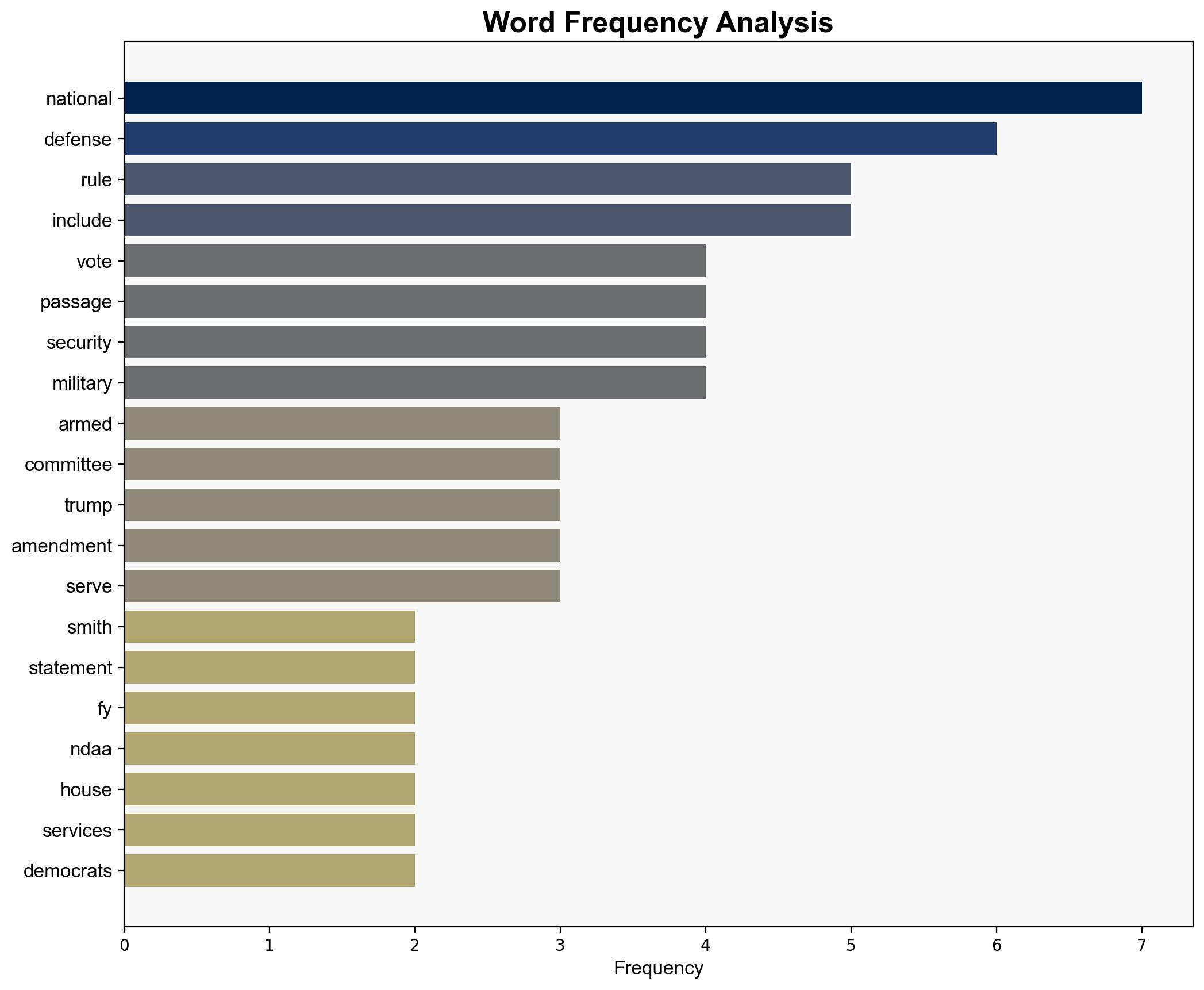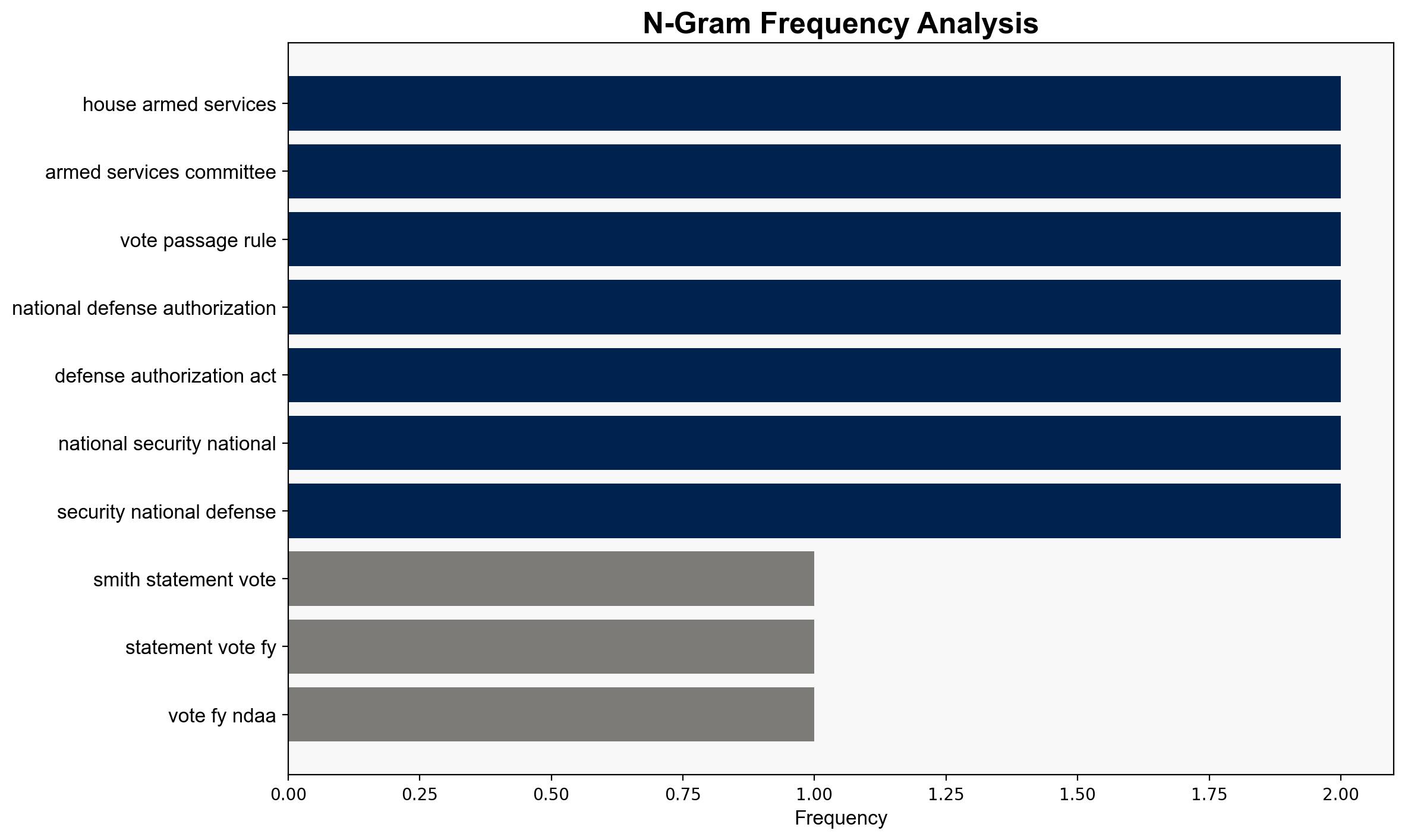Smith Statement on Voting Against FY26 NDAA – Globalsecurity.org
Published on: 2025-09-10
Intelligence Report: Smith Statement on Voting Against FY26 NDAA – Globalsecurity.org
1. BLUF (Bottom Line Up Front)
The most supported hypothesis is that Representative Adam Smith’s opposition to the FY26 NDAA stems from a strategic disagreement over the politicization of military and national security issues under the Trump administration. This analysis is supported by structured analytic techniques, highlighting the potential for increased partisan conflict and reduced bipartisan cooperation on defense matters. Confidence level: Moderate. Recommended action: Monitor legislative developments and prepare for potential shifts in defense policy.
2. Competing Hypotheses
1. **Hypothesis A:** Smith’s opposition is primarily a response to the perceived politicization of national security and military oversight under the Trump administration, aiming to preserve traditional bipartisan defense practices.
2. **Hypothesis B:** Smith’s stance is a tactical maneuver to leverage political capital and influence the inclusion of specific amendments that address Democratic priorities, such as enhanced oversight and reforms in defense acquisition processes.
Using ACH 2.0, Hypothesis A is better supported by the explicit mention of opposition to the Trump administration’s policies and the focus on preserving bipartisan traditions. Hypothesis B lacks direct evidence in the statement but remains plausible given the political context.
3. Key Assumptions and Red Flags
– Assumptions: It is assumed that Smith’s statement reflects genuine policy concerns rather than purely political strategy. Another assumption is that the amendments in question significantly impact national security.
– Red Flags: The absence of specific details on the amendments Smith opposes raises questions about the full scope of his objections. Additionally, potential bias exists in interpreting Smith’s motivations without considering broader political dynamics.
4. Implications and Strategic Risks
– Partisan divisions could escalate, impacting the passage of future defense legislation and potentially weakening U.S. defense posture.
– If oversight and reform measures are not addressed, there may be increased risks of inefficiency and misconduct within defense operations.
– The politicization of military decisions could undermine trust in military leadership and affect morale.
5. Recommendations and Outlook
- Engage in bipartisan dialogue to address core concerns and facilitate the passage of essential defense measures.
- Monitor legislative amendments for potential shifts in defense policy priorities.
- Scenario Projections:
- Best: Bipartisan consensus is achieved, leading to a robust and comprehensive NDAA.
- Worst: Continued partisan conflict results in delayed or weakened defense legislation.
- Most Likely: Incremental progress with some concessions on key amendments.
6. Key Individuals and Entities
– Adam Smith
– Trump Administration
7. Thematic Tags
national security threats, cybersecurity, counter-terrorism, regional focus





